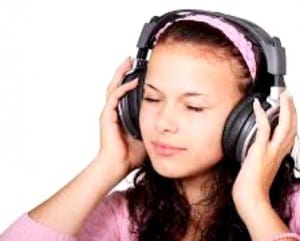
To find out how universal music is, the researchers compared the responses of 40 Canadians in Montreal and 40 individuals from the Mbenzélé Pygmies, a group of people who live in the rainforests of the Congo. The researchers played 30 to 90 second clips of 19 pieces of music—11 Western and 8 Pygmy selections—for the participants. The participants rated how the music made them feel by selecting a smiling or frowning emoticon. They also reported whether the music made them feel calm or excited. While the participants listened to the music, the researchers monitored their physiological response by measuring their heart rate, respiration, and the quantity of sweat on their palms.
The main difference in reactions between the Canadians and the Mbenzélé Pygmies was in their emotional response to the music. Canadians described feeling a wider range of emotions than the Mbenzélé Pygmies. This could be due to the role of music in each culture; Mbenzélé Pygmies mainly use music for ceremonial purposes.
Hauke Egermann who participated in the research as a postdoctoral fellow at McGill says of the findings, “Our major discovery is that listeners from very different groups both responded to how exciting or calming they felt the music to be in similar ways. This is probably due to certain low-level aspects of music such as tempo (or beat), pitch (how high or low the music is on the scale) and timbre (tone colour or quality), but this will need further research.”
Despite these differences, the researchers observed that the physiological response between groups was similar. This suggests a type of universal human response to music, in addition to learned cultural responses.
This research is published in the journal Frontiers in Psychology.
Previous news in



 © 2026 Unyte Health US Inc.
© 2026 Unyte Health US Inc.